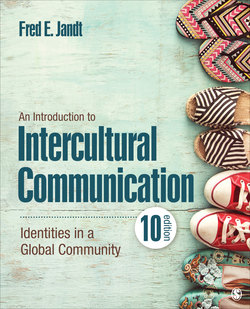Читать книгу An Introduction to Intercultural Communication - Fred E. Jandt - Страница 18
На сайте Литреса книга снята с продажи.
Focus on Culture 1.1 Does Your DNA Reveal Your Culture?
ОглавлениеAds for genetic ancestry tests have shown a man trading his lederhosen for a kilt and a woman upon learning of her ancestry to be the Akan people of Ghana to say, “When I found you in my DNA, I learned where my strength comes from.” Sandy Banks, senior fellow at the University of Southern California Annenberg Center on Communication Leadership & Policy, who self-identifies as a Black American, discovered that her DNA was 54% European and 24% Nigerian. She reported “excitement, wonder, pain, and pride” on learning of her Nigerian ancestry. But later she reported a “comedown” feeling when a reevaluation of her non-European DNA identified her ancestry as Benin/Togo, Cameroon, Congo and South Bantu, Mali, and Ivory Coast/Ghana. She concluded that “identity is more than ancestry” (Banks, 2019). Communication professor Anita Foeman conducts the DNA Discussion Project, which records stories people tell of their family history and then their reactions when presented with their DNA results (Foeman, Lawton, & Rieger, 2015). A 2014 study (Phelan, Link, & Zelner, 2014) revealed that when people read an article about genetic-ancestry tests, their beliefs in racial differences increase.
1 If you don't speak French, don't eat French food, and don't celebrate any French traditions, but your DNA test reveals French ancestry, are you French?
2 How would you react if you were told that your DNA test results contradicted what you had been told of your family history?
